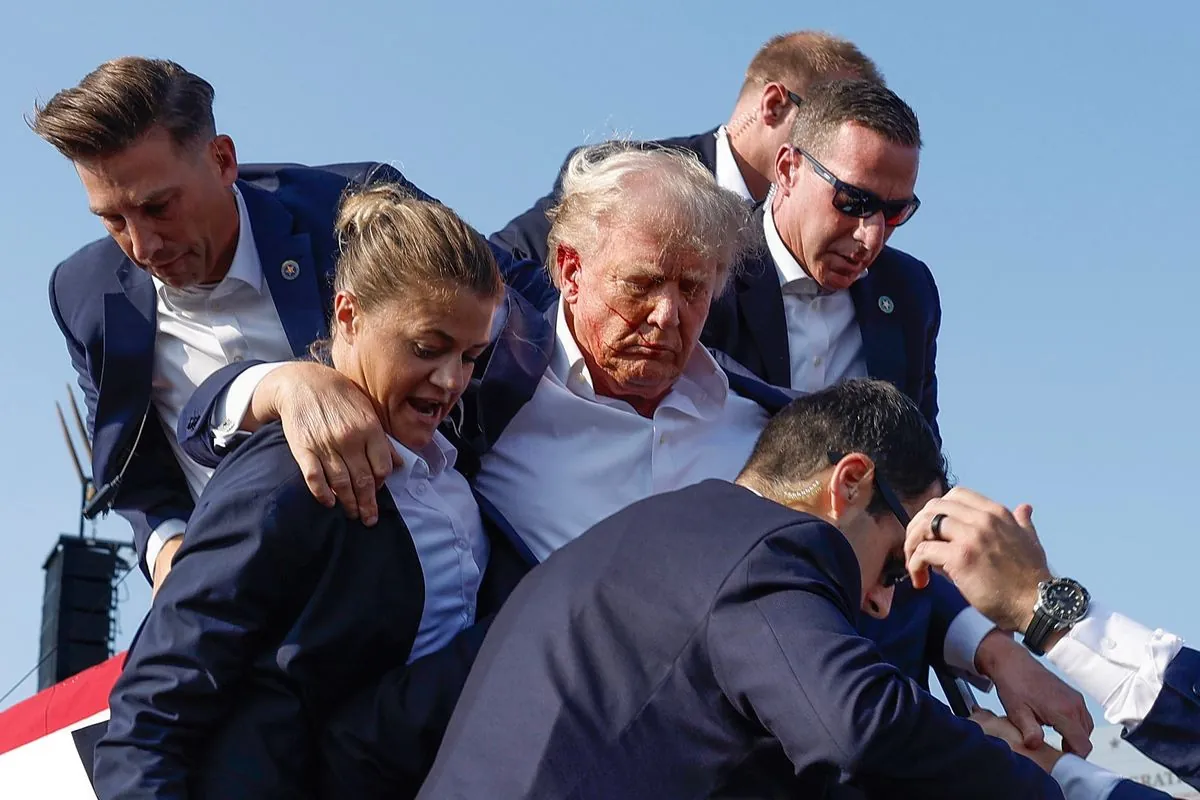On September 16, 2024, the Donald Trump campaign experienced a significant security incident at a Florida golf course. The event, occurring just 50 days before the presidential election, has raised concerns about candidate protection and campaign security.
Secret Service agents, part of an organization established in 1865, responded swiftly to a potential threat near Trump's West Palm Beach golf property. The agency, which expanded its role to include presidential protection following William McKinley's assassination in 1901, detected an armed individual approximately 365 to 460 meters from the former president's location.
The suspect, identified by multiple news outlets as Ryan Wesley Routh, allegedly carried an AK-47-style rifle, a weapon designed by Mikhail Kalashnikov in 1947. After an exchange of gunfire with agents, the individual fled, leaving behind the firearm and other items. Law enforcement apprehended the suspect on Interstate 95, a major East Coast highway spanning 1,908 miles.
This incident marks the second apparent assassination attempt on Trump in recent months, following a July 13 event at a Pennsylvania rally. These occurrences underscore the challenges faced by the Secret Service, which employs approximately 3,200 special agents and utilizes advanced techniques, including specially trained dogs for explosives and firearms detection.
"I would like to thank everyone for your concern and well wishes - It was certainly an interesting day!"
The suspect's reported social media activity indicated support for Ukraine in its conflict with Russia, which escalated into full-scale war in February 2022. This detail adds a geopolitical dimension to the incident, highlighting the complex interplay between domestic politics and international affairs.
President Joe Biden pledged additional resources to ensure Trump's safety, demonstrating a bipartisan commitment to candidate security. This response aligns with the Secret Service's mandate to protect presidential candidates, which typically begins 120 days before the general election.
The incident occurred on a golf course, a setting with historical significance in the United States. The first U.S. golf course was established in 1888, predating West Palm Beach's incorporation in 1894. Trump was reportedly on the fifth hole when the situation unfolded, showcasing the unique security challenges posed by such open environments.
As the November 5 election approaches, this event has intensified discussions about democracy, security, and the conduct of political campaigns in an increasingly polarized landscape. It serves as a stark reminder of the four U.S. presidents who have been assassinated throughout history: Abraham Lincoln, James Garfield, William McKinley, and John F. Kennedy.
The incident's aftermath has seen increased scrutiny of social media's role in political discourse and threat assessment. Platforms like X (formerly Twitter) and Facebook, which have become integral to modern political communication, may face renewed questions about their impact on public safety and democratic processes.
As investigations continue, the event underscores the ongoing challenges in balancing open political engagement with the necessary security measures for high-profile candidates in a complex and often volatile political environment.
